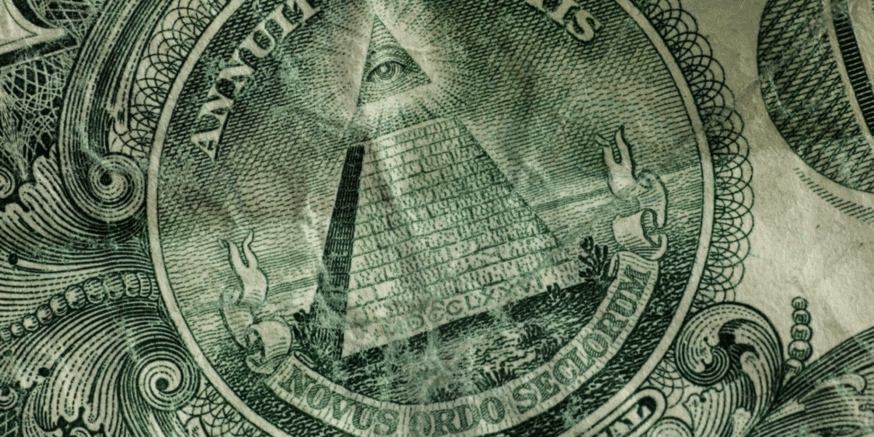FSS Sticks Its Neck Out for Tether
Following a week of scrutiny that its stablecoin, Tether, was used to artificially inflate Bitcoin’s run to $20,000, Tether Ltd. might be in the clear. A financial review conducted by the law firm Freeh, Sporkin & Sullivan LLP (FSS) claims that each USDT is fully-backed by an equivalent USD reserve.
“FSS is confident that Tether’s unencumbered assets exceed the balance of fully-backed USD Tethers in circulation as of June 1st, 2018,” the law firm concludes in its report.
The law firm, which was co-founded by former FBI Director Louis Freeh, says that Tether Ltd. holds $2.54 bln in cash between its two bank accounts. This sum stacks up to–and actually supersedes–the $2.53 bln worth of USDT in circulation as of June 1.
“We’re glad to have independent verification of this to answer some of the questions posed by the public. We are by no means done with our efforts to promote increased transparency at Tether,” Tether CEO Jan Ludovicus van der Velde said in response to the findings.
Van der Velde’s comments read like a sigh of relief, as FSS’s findings seem to exonerate Tether of any foul play.
Only, there are a few qualifiers to these findings, some that FSS notes in its report. These caveats seem to suggest that the report’s clarity offers only a glint of transparency, a look into Tether’s operations that leaves one eye open while the other remains closed.
To start, “FSS is not an accounting firm and did not perform the above review and confirmations using Generally Accepted Accounting Principles,” the law firm states in its report, further warning that their findings “should not be construed as the result of an audit.” It later adds that its over-the-phone and in-person interviews with banking personnel “assumed, without further inquiry, that the bank personnel providing the confirmations were duly authorized to provide such confirmations, and that the confirmations were correct,” meaning that FSS never directly viewed Tether’s holdings, only confirming them by word-of-mouth.
Eugene Sullivan, one of the law firm’s partners, is reportedly an advisory board for one of the banks in question, as well.
The report was anything but official, and it’s worth noting that Tether specifically sought out the law firm to review its finances rather than conduct an official audit.
In fact, Tether has repeatedly refused to subject itself to an official audit. Tether Ltd.’s General Counsel, Stuart Hoegner, claims that this is because the company simply can’t go through traditional avenues to attest its finances. To him, it’s not a symptom of Tether’s unwillingness; it’s a symptom of unwillingness on the part of institutional accounting firms.
“The bottom line is an audit cannot be obtained,” he said in an interview with Bloomberg. “The big four firms are anathema to that level of risk. We’ve gone for what we think is the next best thing.”
The next best thing is akin to an audit Tether received from Friedman LLP back in September of last year. Like FSS’s report, Friedman’s own contained disclaimers regarding its accreditation and is considered unofficial. For its role in conducting the audit, Friedman was subpoenaed by the United State’s CFTC along with Tether and Bitfinex earlier this year.
For skeptics, either report might look like little more than Tether’s attempt to save face and put on a mask of transparency while continuing the same practices that have put it in hot water.
Turning up the heat of public scrutiny, two professors at the University of Texas, Austin published a 66-page study this week that claims Tether was used to manipulate Bitcoin’s price at the peak of its run-up last year. According to the findings of professors John M. Griffin and Amin Shams, “purchases with Tether are timed following market downturns and result in sizable increases in Bitcoin prices,” which is “most consistent with [a] supply-based hypothesis where Tether is used to provide price support and manipulate cryptocurrency prices.”
The study tells another story that crypto conspirators have parroted for the past year, that Tether is not completely backed by dollar reserves and its creators have been printing USDTs to control Bitcoin’s price swings. Given the unofficial nature of FSS’s report, which contrasts with these claims, those who side with Shams and Griffin aren’t likely to change their minds.
That would take an official audit or a probe by a government agency. Given Tether’s resistance to the former and the CFTC’s Janurary subpoena, the latter will likely be the only means to provide an irrefutable rundown of Tether’s operations.
Never Miss Another Opportunity! Get hand selected news & info from our Crypto Experts so you can make educated, informed decisions that directly affect your crypto profits. Subscribe to CoinCentral free newsletter now.










